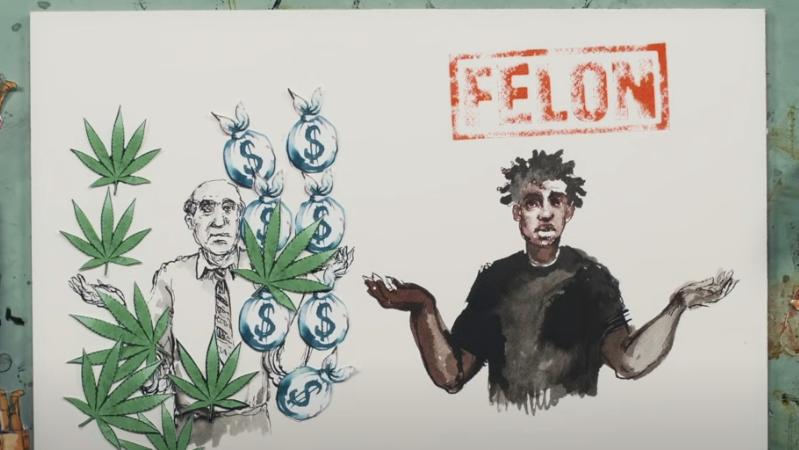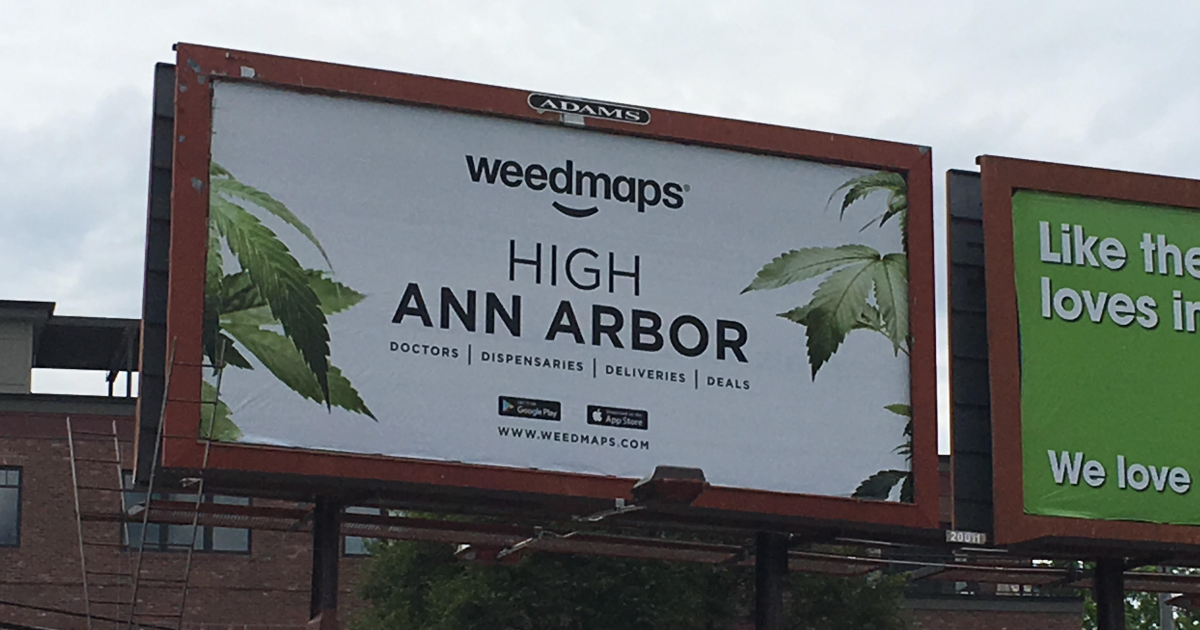Racial Disparities in the Legalized Marijuana Industry

These days, it’s hard to overlook the explosion of cannabis retail stores on every corner, or the numerous cannabis billboards scattered along highways near the boarders of states with legalized marijuana. Despite a global pandemic, legal cannabis sales hit $20 billion in 2020, $25 billion in 2021, and are projected to hit $45.9 billion in 2025.[2] With these numbers, the legalized cannabis industry is poised to become larger than the craft beer industry.[3]
The industry added more than 107,000 new jobs in 2021, bringing the total number of Americans working in the industry to 428,000.[4] These jobs include working in direct cultivation and retail roles, as well as ancillary jobs like accounting, construction, and regulatory compliance.[5]
This multi-billion dollar industry started when Colorado and Washington legalized recreational marijuana for adults over 21 years of age in November of 2012.[6] Although recreational marijuana is now legal in 18 states and D.C., it is still an illegal Schedule I substance on the federal level.[7] The Schedule I substance category includes substances such as heroin, MDMA, and LSD.[8] While there have been calls for legalization of marijuana on the federal level, lawmakers have yet to reach a consensus on the issue.[9] Some lawmakers want incremental banking and tax reforms for the industry first, while others want to handle legalization with one comprehensive legislation.[10]

The racial disparity in enforcement of marijuana and other drug violations in the U.S. remains prevalent. In 2020, the ACLU published a research report entitled, “A Tale of Two Countries: Racially Targeted Arrests in the Era of Marijuana Reform.”[11] Despite the increasingly widespread legalization of marijuana in the past ten years, the report found that “racial disparities in arrests persist even in states that have legalized or decriminalized marijuana,” and that “extreme racial disparities in marijuana possession arrests persist throughout the country.”[12]
Communities of color have historically been, and continue to be, the target of drug crime enforcement.[13] At the same time, these communities have faced barriers to entering the lucrative legal marijuana economy.[14] Many states have complex, nontransparent application and licensing processes, which require experience dealing with government regulators.[15] Some states do not accept applications from those who have had a misdemeanor or arrest for drug possession, including possession of marijuana, a policy choice that Dr. Malik Burnett of the Drug Policy Alliance says is “automatically discrimination against people of color.”[16] Further, applicants need access to a significant level of additional funds on top of already steep licensing fees.[17] While access to investment capital is a barrier to people of color in all forms of business, regular access to business loans are more limited in the cannabis industry.[18] Additionally, some states require liquid non-working assets to obtain a license.[19]
A number of jurisdictions have started social equity marijuana licensing programs, “which aim to make amends for decades of aggressive policing of low-income, minority people and help them thrive in the multibillion-dollar legal pot industry.”[20] These programs often offer priority licensing, assist with expungement of past marijuana offenses from criminal records, and provide cannabis tax revenue funded community-development components.[21] However, people of color continue to struggle to start legal cannabis businesses. Problems with social equity programs across the country include “delays, lawsuits, computer glitches and corruption allegations.”[22] Applicants also still lack access to the money and expertise they need to obtain licenses and start their businesses.[23] Another criticism of many state and city social equity programs is that they usually limit the overall number of licenses, which pressures regulators to ensure that applicants have “spotless qualifications.”[24] Unfortunately, many jurisdictions will reach their maximum number of dispensaries before many social equity applicants even have the chance to apply.[25]
While a number of inequitable conditions persist in the legalized cannabis industry, even in jurisdictions with social equity programs, policymakers continue to make changes as new information arises:
“‘Some things work, and some things don’t work,’ [Colorado State Rep.] Herod said. ‘So we’re going to continue to iterate, until we have parity in the marketplace.’”[26]
- Image taken from “What is the Drug War?” With Jay-Z & Molly Crabapple, which can be viewed here: https://www.youtube.com/watch?v=HSozqaVcOU8 ↑
- Alicia Wallace, Cannabis is one industry that’s actually coming out of Covid even stronger, CNN Business (Oct. 28, 2021), https://www.cnn.com/2021/10/28/business/cannabis-booming-industry-mjbizcon/index.html; Jesse O’Neill, US cannabis market soared in 2021, but was dragged down by New York, N.Y. Post (Feb. 23, 2022), https://nypost.com/2022/02/23/us-cannabis-market-soared-in-2021-but-was-dragged-down-by-ny/ ↑
- Wallace, supra note ii. ↑
- O’Neill, supra note ii. ↑
- Id. ↑
- Casey Leins, Horus Alas, & Elliott Davis Jr., Where is Marijuana Legal? A Guide to Marijuana Legalization, U.S. News (Jan. 6, 2022), https://www.usnews.com/news/best-states/articles/where-is-marijuana-legal-a-guide-to-marijuana-legalization#colo ↑
- Leins, Alas, & Davis, supra note vi; O’Neill, supra note ii. ↑
- O’Neill, supra note ii. ↑
- Wallace, supra note ii. ↑
- Id. ↑
- ACLU, A Tale of Two Countries: Racially Targeted Arrests in the Era of Marijuana Reform (2020), https://www.aclu.org/sites/default/files/field_document/marijuanareport_03232021.pdf ↑
- Id. ↑
- Naina Kamath, Addressing Systemic Racism and Barriers to Entry in the Cannabis Industry, Duane Morris Cannabis Practice Overview (July 1, 2020), https://blogs.duanemorris.com/cannabis/2020/07/01/addressing-systemic-racism-and-barriers-to-entry-in-the-cannabis-industry/. ↑
- Id. ↑
- Tracy Jarrett, Six Reasons African Americans Aren’t Breaking Into Cannabis Industry, NBC News (Apr. 20, 2015, 12:14 AM), https://www.nbcnews.com/news/nbcblk/6-reasons-african-americans-cant-break-cannabis-industry-n344486 ↑
- Id. ↑
- Id. ↑
- Id. ↑
- Id. ↑
- Sophie Quinton, Black-Owned Pot Businesses Remain Rare Despite Diversity Efforts, PEW (Jan. 15, 2021), https://www.pewtrusts.org/en/research-and-analysis/blogs/stateline/2021/01/15/black-owned-pot-businesses-remain-rare-despite-diversity-efforts ↑
- Id. ↑
- Id. ↑
- Id. ↑
- Id. ↑
- Id. ↑
- Id. ↑
